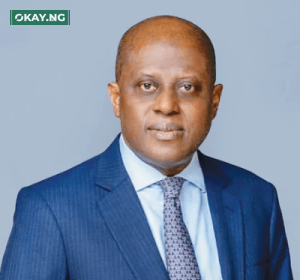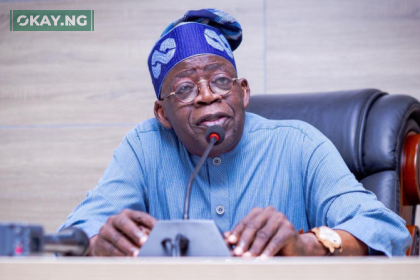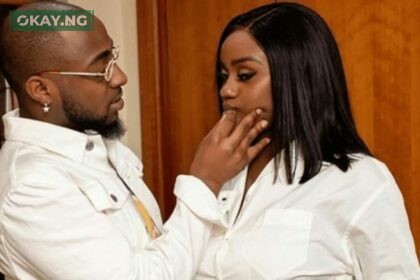YEMI ALADE

Yemi Alade (Fader)
FADER Magazine recently featured Africa’s leading female artiste Yemi Alade in an exclusive interview with they called, “How Yemi Alade Hustled Her Way to Become the Queen of Afrobeats“.
The article depicts a colourful picture of Yemi Alade’s talent, music, enormous success, international appeal and how she is bridging her continent’s cultural divides to become one of its biggest stars.
Read excerpts from the feature.
“Yemi Alade gives everything up on stage. There’s a video of the Nigerian artist performing at London’s Wembley Arena as part of Dance Afrique in summer 2015 that finds her lost in the emotion of her yearning ballad, “Duro Timi.” Dressed in a sequined bodycon playsuit with peaked fluoro shoulders, she gestured emphatically into the crowd, seized the microphone stand as if removing an obstacle in front of her, and broke into angular dance moves. Alade’s facial expressions flipped from tender to outraged as she commanded the focus of the crowd with ease.
On trying to break through as a woman Yemi Alade says,
“We have to toil 10 times harder. Many times I have been at events with guys who I have bigger songs [than], but just because he’s a guy he’s given preferential treatment. It’s not the guys’ fault. It’s just the way the world has been wired; females are mostly placed as second place. We’re seen more as gracious and calm than strong and powerful, so we have to rise above sexual harassment, financial constraints, culture, even rise above nature sometimes — that monthly visitor! [laughs] But I wear my game face when it’s time for business. And I don’t go alone — I go with a team that knows what they’re doing. When I show up, you’re going to understand that power just walked in.But I don’t try to please anybody. I don’t try to make it like, Oh I want to do this so you can like me. Not everyone loves mangos, but I think mangos are amazing. Not everybody likes peaches but I think peaches are amazing as well. I’m just myself.”
Fader asked; Throughout your career you’ve recorded songs in different languages, like French or Swahili. Is that reflective of a desire to reach your fans in those markets?
Definitely. I’m a lover of languages, and sometimes I’m even a lover of accents.
The French version of “Johnny” was for fun, but for “Kissing” there was more of a goal — I wanted it to mean more to my listeners. If I sing one of my songs in your language, you can totally own it. My dad is Yoruba and my mom is Igbo, so those two languages are kind of in my pocket. I speak English — something we call vernacular pidgin English — but when it comes to international languages I’m stuck on French right now. I’m working on Swahili and hopefully at some point I might learn Portuguese.
Has being half Yoruba and half Igbo helped you access different cultures?
I couldn’t have put it better. Tribe is a very strong factor in Nigeria, and coming from two major tribes is a big plus for me. Personally, it’s helped me embrace both cultures, and you can see through the fact that it’s all just one culture. Just some different names attached to it and different languages.
Read the rest of the feature Here.









